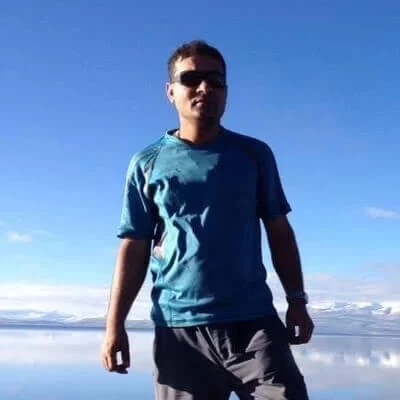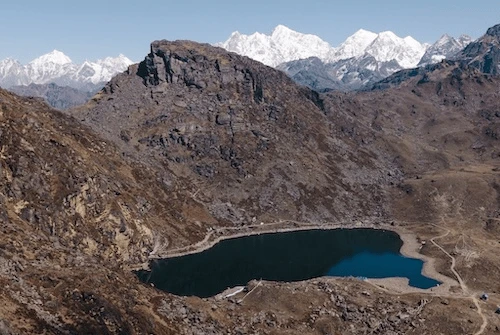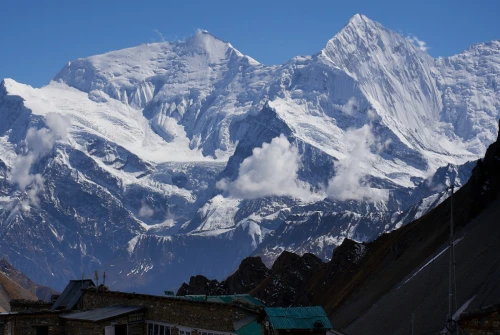Getting Better Through Practice
One of the biggest pitfalls for solo travelers, especially beginners, is attempting a complex or long journey without any prior solo travel experience. This can lead to feeling overwhelmed, stressed, or even unsafe.
Start small. If this is your first time traveling alone, don’t jump straight into a month-long international adventure. Instead, try smaller solo outings to build your confidence and independence. Take yourself out for a day trip in your own city, visit a museum, or go on a short hike. Even a solo meal at a restaurant can be a good exercise.
By gradually increasing the scale of your trips, you’ll become more comfortable with managing your own schedule, handling unexpected situations, and enjoying your own company. This practice helps reduce anxiety and builds a strong foundation for longer journeys.
Avoid Overplanning
It’s natural to want everything to go smoothly when traveling alone, but overplanning every moment can actually detract from the experience. A tightly scheduled itinerary leaves little room for spontaneity, serendipitous discoveries, or simply relaxing and soaking in the atmosphere.
When you travel solo, one of the greatest benefits is the freedom to change your plans on a whim. So, instead of booking every activity or transport in advance, consider leaving some days or afternoons open for exploration or rest.
This approach allows you to follow your intuition, meet locals, and adjust your trip according to your mood or weather. Remember, the purpose of a vacation is to enjoy the present moment, not to rush through a checklist.
Proper Research and Planning
While it’s good to avoid overplanning, adequate research is crucial when traveling alone. Thorough preparation can prevent many potential problems and help you feel safer.
Budgeting: Calculate your estimated costs for accommodation, food, transportation, and activities. Add a buffer for emergencies or unexpected expenses.
Itinerary: Have a rough plan of where you’re going and when. Book your accommodations ahead of time, especially if traveling during peak seasons or to popular destinations. This will prevent the stress of finding last-minute lodging.
Local customs and laws: Familiarize yourself with the cultural norms, language basics, and any laws or regulations. Knowing local etiquette can help you avoid misunderstandings.
Emergency contacts: Note down emergency phone numbers, embassy contacts, and the addresses of your country’s consulates.
Packing: Make a checklist of essentials tailored to your destination’s climate and activities. Check travel advisories or health recommendations.
Being prepared with this knowledge will not only help you stay safe but also boost your confidence as you explore new places.
Knowing What to Pack
Packing is often one of the most stressful parts of travel, but with a good checklist and a focus on essentials, you can simplify the process.
Essentials to bring when traveling solo:
Travel documents: Passport, visa, copies of important papers, travel insurance.
Money: Local currency, credit/debit cards, emergency cash.
Clothing: Versatile, weather-appropriate clothes; layers are useful for changing climates.
Toiletries: Toothbrush, toothpaste, deodorant, razor, and any personal hygiene products.
Health kit: Pain relievers, band-aids, prescription medications, anti-diarrheal meds, sunscreen, insect repellent.
Electronics: Phone, charger, power bank, adapters.
Safety items: Small first-aid kit, whistle, door alarm or portable lock, personal alarm.
Pro tips:
Avoid overpacking; carrying heavy luggage alone can be tiring and unsafe.
Use packing cubes or bags to keep things organized.
Keep valuables and important documents in your daypack or money belt, close to your body.
Bring a reusable water bottle and snacks for long travel days.
Remember, packing light helps you stay flexible and move easily between destinations.
Things Don’t Always Go As Expected
One of the most important lessons in solo travel is learning to embrace uncertainty and adapt to challenges. No matter how much you plan, unforeseen events—like delayed flights, lost luggage, language barriers, or illness—can occur.
When things go wrong:
Stay calm. Panic only makes things harder to resolve.
Think logically. Assess your options and make decisions based on safety and practicality.
Ask for help. Don’t hesitate to seek assistance from locals, hotel staff, or other travelers.
Adjust your plans. Sometimes, flexibility is the best way forward.
Solo travel teaches resilience and problem-solving. Over time, you’ll become more comfortable handling unexpected situations, which is a valuable life skill beyond travel.
Consider Booking Through a Travel Agency
While independent travel is liberating, solo travelers sometimes benefit from the support of a travel agency, especially when visiting remote or challenging destinations.
A travel agency can:
Arrange your itinerary, transportation, and accommodations.
Provide local guides and porters to assist with logistics.
Offer safety and emergency support.
Connect you with like-minded travelers for group activities or treks.
For example, if you are planning to trek in Nepal, agencies like All Nepal Hiking offer tailored solo travel packages with guides and porters to ensure your journey is safe and enjoyable without the hassle of managing every detail yourself.
Booking through an agency can ease stress and let you focus on the experience, knowing that experts have your back.
Safety Tips for Solo Travelers
Your safety should always be a top priority when traveling alone. Here are some essential tips to help keep you secure:
Stay aware of your surroundings. Avoid distractions like looking at your phone constantly when walking in unfamiliar areas.
Trust your instincts. If something feels off, remove yourself from the situation.
Keep emergency contacts handy. Save local emergency numbers and your embassy contacts on your phone.
Secure your belongings. Use locks for your luggage and keep valuables close.
Avoid risky areas at night. Stick to well-lit, populated places.
Share your itinerary. Inform friends or family about your plans and check in regularly.
Stay sober and alert. Drinking too much can impair your judgment.
Enjoy Your Own Company
One of the greatest rewards of solo travel is the chance to truly enjoy your own company. You can set your own pace, choose your own interests, and reflect deeply without distractions.
Take time to journal or photograph your experiences.
Meditate or simply enjoy quiet moments in nature or cafes.
Meet other travelers and locals, but don’t feel pressured to socialize constantly.
Celebrate your independence and courage.
Solo travel offers unique personal growth and self-discovery that will enrich your life long after your trip ends.
Stay Connected
While embracing solitude is part of solo travel, staying connected can provide comfort and safety:
Buy a local SIM card or portable Wi-Fi device.
Use messaging apps to keep in touch with family and friends.
Share your live location when moving between places.
Join online travel forums or social media groups for advice and camaraderie.
Final Thoughts
Traveling alone isn’t without its challenges, but the benefits far outweigh the risks when you’re well-prepared. From gaining confidence and freedom to forming meaningful connections, solo travel is an adventure that transforms you.
Remember to start small, research carefully, pack smart, stay flexible, and prioritize safety. Consider professional support when needed, and most importantly—enjoy the journey and the discovery of both the world and yourself.
Ready to start your solo travel adventure? Explore our range of guided and independent trekking tours, ideal for solo travelers, at All Nepal Hiking. Whether trekking the Himalayas or exploring Nepal’s rich culture, we’ll help you create memories for a lifetime.




